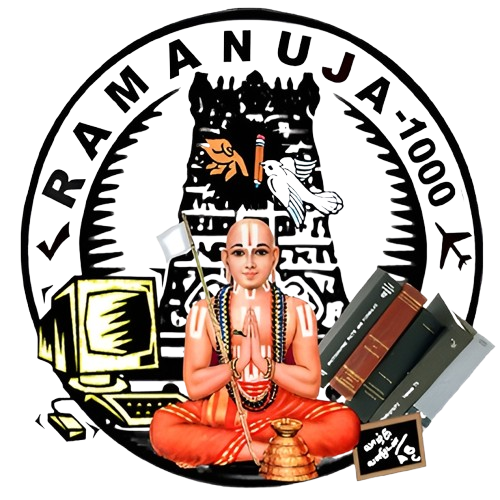DMO-DIPLOMA IN TALLY PRIME
- Real Time Experts as Trainers
- Certification
- Flexibility
- Duration 4 Months
- LIVE Project
MCP-MASTER IN COMPUTER PROGRAMMING
Introduction to MCP-MASTER IN COMPUTER PROGRAMMING (Duration 12 Months)
I. Front-End Language & Library
HTML5
- HTML Basics: Tags, elements, attributes, and document structure
- New HTML5 Elements: Header, section, article, aside, footer
- Canvas: Drawing graphics and animations on the web
- Multimedia Integration: Adding audio and video content
- Form Elements: Creating interactive user input fields
- Semantic Elements: Enhancing SEO and accessibility
MCP-MASTER IN COMPUTER PROGRAMMING (DURATION- 12 MONTHS)
I. FRONT-END LANGUAGE & LIBRARY
II. PROGRAMMING TOOL
✦ Data Types
✦ Operators
✦ Expressions
✦ Conditional Compilation
✦ Looping & Branching
✦ Arrays
✦ Functions
✦ Storage Classes
✦ Structures and Unions
✦ Pointers
✦ Dynamic Memory Allocation
✦ File Handling
✦ Linked Lists
✦ Double Linked List
✦ Circular Linked List
✦ Bit Manipulation
✦ Introduction to Data Structure
✦ Introduction to OOPS
✦ Input & Output Streams
✦ Classes & Objects
✦ Member Functions
✦ Friend Functions & Classes
✦ Constructor & Destructor
✦ Functions
✦ Inheritance
✦ Polymorphism
✦ File handling using Stream Classes
✦ Instance
✦ Templates
✦ Data Types
✦ Arrays
✦ Functions
✦ Inheritance
✦ Interfaces
✦ Garbage Collection
✦ Exception Handling
✦ Collection
✦ File Streams
✦ Serialization
✦ Multi Threading
✦ Networking
✦ Socket Programming
✦ JDBC
✦ JFC / Swing
✦ Introduction to Python
✦ History
✦ Features
✦ Working with Python
✦ Basic Syntax
✦ Variable and Data Types
✦ Operator and Expressions
✦ Conditional Statements
✦ If – If- else
✦ Nested if-else
✦ Looping – For – While
✦ Nested loops
✦ Control Statements
✦ Break
✦ Continue
✦ Pass
✦ String Manipulation
✦ Accessing Strings
✦ Pass
✦ String Manipulation
✦ Accessing Strings
✦ Basic Operations
✦ String slices
✦ Function and Methods
✦ Lists
✦ Introduction
✦ Accessing list
✦ Operations
✦ Working with lists
✦ Function and Methods
✦ Introduction
✦ Accessing tuples
✦ Working
✦ Dictionaries
✦ Introduction
✦ Working
✦ Dictionaries
✦ Working with dictionaries
✦ Properties
✦ Functions
✦ Function Arguments
✦ Anonymous functions
✦ Global and local variables
✦ Modules
✦ Importing module
✦ Math module
✦ Random module
✦ Packages
✦ Composition
✦ Input
✦ Output
✦ Composition
✦ Printing on screen
✦ Reading data from keyboard
✦ Opening and closing file
✦ Reading and writing files
✦ Functions
✦ Exception Handling
✦ Exception
✦ Except clause
✦ OOPs concept
✦ Class and object
✦ Attributes
✦ Inheritance
✦ Overloading
✦ Overriding
✦ Data hiding
✦ Polymorphism
✦ Data Structure
III.DATABASE MANAGEMENT SYSTEM
✦ Client / Server Concepts
✦ Relational Model
✦ Data Definition Using SQL
✦ Modify Tables
✦ Relational Model
✦ Data Definition Using SQL
✦ Using ALTER TABLE Queries
✦ Add a Column
✦ Using ALTER TABLE Queries
✦ INSERT and DELETE Queries
✦ UPDATE Queries
✦ Using Select Queries SELECT
✦ WHERE
✦ LIMIT
✦ ORDER BY
✦ GROUP BY
✦ Constraints and Indexes
✦ Views
✦ Expressions
✦ Grouping
✦ Using Functions
✦ Math Functions
✦ Compare String values
✦ Work with Dates
✦ Compare String values
✦ JOIN and Subqueries
✦ Advanced MySQL Query Processing
II. Programming Languages
“C” Language
- Data Types, Operators, and Expressions
- Control Flow: Looping, branching, and conditional compilation
- Arrays and Functions: Creating reusable code blocks
- Storage Classes and Variable Scope
- Structures and Unions for custom data organization
- Advanced Concepts: Structures, unions, pointers, and memory management
- File Handling and Data Storage
- Data Structures: Linked lists (single, double, and circular), bit manipulation, and basic data structure principles
Object-Oriented Programming using C++
- Fundamentals of Object-Oriented Programming (OOP)
- Input & Output Streams
- Member Functions and Function Overloading
- Friend Functions and Friend Classes
- Operator Overloading for intuitive object interaction
- Constructors & Destructors
- Inheritance & Polymorphism
- File Handling with Stream Classes
- Instances and Templates for Generic Programming
Java Programming
- Data Types, Arrays, Classes, and Methods
- Inheritance, Interfaces, and Polymorphism
- Exception Handling and Garbage Collection
- Working with Collections and Generics
- File Streams, Serialization, and Input/Output
- Multithreading for concurrent execution
- Networking and Socket Programming
- Database Connectivity using JDBC
- Building GUI Applications with JFC/Swing
PYTHON
- Introduction, History, and Setup
- Variables, Data Types, Operators, and Expressions
- Conditional Statements (if, if-else, nested if)
- Looping (for, while, nested) and Control Statements (break, continue, pass)
- String Manipulation and Built-in String Methods
- Data Structures: Lists, Tuples, Dictionaries – with operations and functions
- Functions: Definition, Types, Arguments, Anonymous (lambda), Scope
- Modules and Packages: Math, Random, and Custom Modules
- File Handling: Reading/Writing, Keyboard Input, Screen Output
- Exception Handling: try, except, else, finally
- OOPs in Python: Classes, Objects, Inheritance, Overloading, Overriding, Data Hiding
- Introduction to Python Data Structures
III. Database Management System
MySQL
- Understanding Client/Server Concepts and the Relational Database Model
- Creating and Modifying Tables using SQL (CREATE, ALTER, DROP)
- Managing Data with INSERT, DELETE, and UPDATE Queries
- Using SELECT Queries with WHERE, LIMIT, ORDER BY, GROUP BY, and JOIN
- Applying Constraints, Indexes, and Primary Keys for Data Integrity
- Creating and Using Views for Simplified Data Access
- Performing Data Grouping, Aggregation, and Filtering
- Working with Built-in Functions: Mathematical, String, and Date Functions
- Writing JOINs and Subqueries for Advanced Data Retrieval
- Exploring Advanced Query Processing Techniques for Efficiency
- Advanced Query Processing techniques to improve data handling
Frequently Asked Questions (FAQ)
Yes, absolutely. This course is designed for both beginners and individuals with basic computer knowledge. We start from the fundamentals and gradually progress to advanced topics.
Yes. Upon successful completion of the course and assessments, you will receive a course completion certificate from our institution.
Yes, the course includes hands-on practice with real-time examples
Yes, you will receive a recognized course completion certificate.


